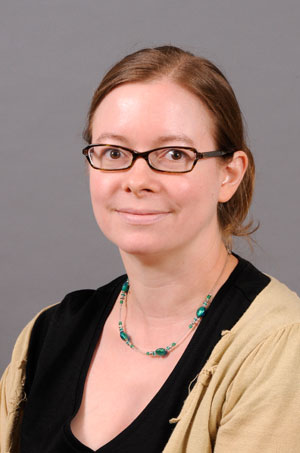Faculty Profile
Rebecca Connor
Associate Professor of Chemistry (2010)Contact Information
Rector Science - Stuart Hall
717-245-1553
Bio
My research interests currently include the molecular interactions of electrophilic natural products with human leukemia cells and the role of chaperone proteins in apoptosis and stress response pathways. Research projects in my lab range from chemical synthesis to proteomics and protein engineering.
Education
- B.S., Carnegie Mellon University, 1999
- Ph.D., California Institute of Technology, 2008
2025-2026 Academic Year
Fall 2025
FYSM 100 First-Year Seminar
The First-Year Seminar (FYS) introduces students to Dickinson as a "community of inquiry" by developing habits of mind essential to liberal learning. Through the study of a compelling issue or broad topic chosen by their faculty member, students will:
- Critically analyze information and ideas
- Examine issues from multiple perspectives
- Discuss, debate and defend ideas, including one's own views, with clarity and reason
- Develop discernment, facility and ethical responsibility in using information, and
- Create clear academic writing
The small group seminar format of this course promotes discussion and interaction among students and their professor. In addition, the professor serves as students' initial academic advisor. This course does not duplicate in content any other course in the curriculum and may not be used to fulfill any other graduation requirement.
CHEM 490 Protein Engineering
In this course, we will explore the design, production and use of proteins and protein-based materials for biomedical applications. Topics to be covered will include biological therapeutics, protein-based materials for tissue engineering and designed evolution of desired enzymatic activity.
CHEM 560 Stu/Faculty Collaborative Rsch
Spring 2026
CHEM 132 General Chemistry II with Lab
A continuation of Chemistry 131. Topics covered in the second semester will include: kinetics, equilibrium, acids, bases, and buffers, thermodynamics, electrochemistry, nuclear chemistry, and transition metal chemistry.
Three hours of classroom and three hours of laboratory per week. Prerequisite: 131.
CHEM 342 Struct & Funct of Biomolecules
This course is an introductory biochemistry course focused on the chemistry of the major molecules that compose living matter. The structure and function of the major classes of biomolecules (nucleic acids, proteins, lipids, and carbohydrates) are addressed along with other topics including bioenergetics, enzyme catalysis, and information transfer at the molecular level. The laboratory portion of the course focuses on methods used to study the properties and behavior of biological molecules and their functions in the cell.
Three hours lecture and four hours of laboratory per week. Prerequisite 242; an introductory biology course is highly recommended.
BCMB 560 Stu/Faculty Collaborative Rsch
Student/Faculty Collaborative Research allows a student to conduct original research in close partnership with faculty collaborator(s). The project should be designed as an investigation yielding novel results that contribute to the area of study. With the faculty collaborator(s), students will develop the project and participate in all aspects fo the reasearch. It is expected that the faculty member will work closely with the student for at least half of the time the student is pursuing the research. The final project must be presented to the faculty collaborator(s) no later than one week prior to the end of the evaluation period. The course will typically earn one half or one full course credit per semester.
